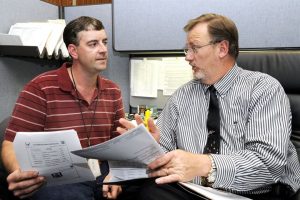Bankruptcy Considerations During the Coronavirus (COVID-19) Part 1: Chapter 11 Bankruptcy
The Coronavirus (COV-19) has had a negative impact on everyone physically, mentally, and financially. Businesses are no different. Small and medium sized businesses are especially vulnerable in these troubled times. They are faced with difficult decisions such as whether to temporarily lay off their employees or which bills to pay when little or no revenue is being received.
At McLaughlin & Nardi, LLC, we focus a portion of our practice on advising small and medium sized businesses when faced with these difficult financial decisions. When a business becomes overwhelmed and unable to meet its financial obligations, filing a Chapter 11 bankruptcy may be a great means to get the business back on track.
 New Jersey Lawyers Blog
New Jersey Lawyers Blog


 economic hardships as a result of lost business during widespread closures and stay-at-home orders. The first major legislation passed by the federal government was the Families First Coronavirus Response Act which provided job protection and paid leave provisions. Now, the government has recently passed the Coronavirus Aid, Relief, and Economic Security Act (also known as the “CARES Act”).
economic hardships as a result of lost business during widespread closures and stay-at-home orders. The first major legislation passed by the federal government was the Families First Coronavirus Response Act which provided job protection and paid leave provisions. Now, the government has recently passed the Coronavirus Aid, Relief, and Economic Security Act (also known as the “CARES Act”).
 When a solid waste collection company enters into a contract to transfer ownership of assets, a petition for approval must be submitted the New Jersey Department of Environmental Protection. Assets may not be transferred until this approval is obtained. One area which the NJDEP evaluates prior to issuing such an approval is the impact of the transfer upon effective competition. This is a very detailed analysis which can be time consuming.
When a solid waste collection company enters into a contract to transfer ownership of assets, a petition for approval must be submitted the New Jersey Department of Environmental Protection. Assets may not be transferred until this approval is obtained. One area which the NJDEP evaluates prior to issuing such an approval is the impact of the transfer upon effective competition. This is a very detailed analysis which can be time consuming. A recent decision in the case of
A recent decision in the case of  Background
Background Some of the areas in which businesses make their largest investments of time and expense are trade secrets (including customer lists) customer relations and client development, and employee development. However, these interests may conflict, especially when highly placed employees leave a firm. This is an area of potentially bitter dispute in New Jersey business law and employment law.
Some of the areas in which businesses make their largest investments of time and expense are trade secrets (including customer lists) customer relations and client development, and employee development. However, these interests may conflict, especially when highly placed employees leave a firm. This is an area of potentially bitter dispute in New Jersey business law and employment law. are business entities. It is one of the strongest of New Jersey’s
are business entities. It is one of the strongest of New Jersey’s  An attorney-client relationship involves the reasonable reliance by an individual (the client) on the professional knowledge and/or skills of an attorney who is aware of and accepts responsibility for that reliance. While a written agreement is not required for this relationship to exist, there must be some mutual understanding, consensus, and/or act manifesting the acknowledgement of the relationship.
An attorney-client relationship involves the reasonable reliance by an individual (the client) on the professional knowledge and/or skills of an attorney who is aware of and accepts responsibility for that reliance. While a written agreement is not required for this relationship to exist, there must be some mutual understanding, consensus, and/or act manifesting the acknowledgement of the relationship. In a business dispute, a prevailing party is awarding damages awarded damages it can prove, typically awarded lost profits. The “New Business Rule,” however, has traditionally including recovery of lost profits for “new” businesses, because their lack of a track record makes estimating lost profits too speculative. The is a longstanding rule in New Jersey commercial litigation. However, several newer cases indicate that it may be on the way out and indeed may already be dead, and in any event courts strain to avoid its application. This is logical, because another guiding principal of New Jersey business law is that equity requires that courts try to prevent a wrongdoer from profiting from its misdeeds at the expense of an innocent party. The new cases lead to the conclusion that that it is questionable whether the New Business Rule remains valid at all.
In a business dispute, a prevailing party is awarding damages awarded damages it can prove, typically awarded lost profits. The “New Business Rule,” however, has traditionally including recovery of lost profits for “new” businesses, because their lack of a track record makes estimating lost profits too speculative. The is a longstanding rule in New Jersey commercial litigation. However, several newer cases indicate that it may be on the way out and indeed may already be dead, and in any event courts strain to avoid its application. This is logical, because another guiding principal of New Jersey business law is that equity requires that courts try to prevent a wrongdoer from profiting from its misdeeds at the expense of an innocent party. The new cases lead to the conclusion that that it is questionable whether the New Business Rule remains valid at all.